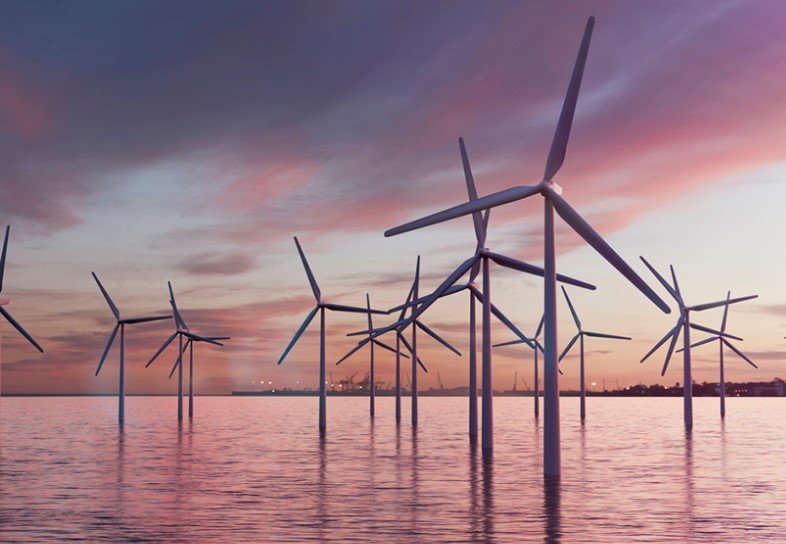UK-based subsea engineering firm expands analysis services for Egyptian wells amid growing regional drilling demands
Aquaterra Energy just bagged another two years on the job in Egypt’s offshore sector—quietly locking in a contract that speaks volumes about both the company’s staying power and Egypt’s evolving offshore ambitions.
The extension, confirmed this week, keeps Aquaterra in the game through 2027 as the trusted offshore analysis partner for one of Egypt’s top energy operators. It follows two years of detailed technical work, ranging from riser evaluations to conductor strength planning across seven subsea well locations.
From Seven Wells to a Long-Term Relationship
When the UK-based engineering firm first landed its offshore analysis deal in 2023, it was part of a cautious but ambitious expansion strategy into the East Mediterranean. Now, with multiple wells under their belt and a proven track record, Aquaterra is becoming a fixture.
The job hasn’t exactly been simple. The company was brought in to help verify well integrity, ensure drilling safety, and optimize casing design—while navigating the harsh realities of seasonal environmental conditions and deepwater rig behavior.
That includes some high-stakes challenges.
For example, managing conductor stability in vessel drift-off scenarios was critical. Any failure there could mean downtime or worse—compromised wells. Aquaterra’s solution? A mix of custom software modeling, advanced simulations, and relentless coordination with rig teams on site.

A Quiet Win in a Busy Offshore Zone
Egypt’s offshore energy sector is busier than it looks.
While media attention often focuses on gas giants like Zohr, there’s been a steady hum of development across the Gulf of Suez, Nile Delta, and Mediterranean deepwaters. Operators—both state-owned and international—are expanding exploration and production, and they’re relying more on specialist technical firms like Aquaterra to get it right.
Martin Harrop, Offshore Analysis Manager at Aquaterra Energy, put it simply: “This extension marks an important continuation of our relationship…we’ve delivered targeted analysis to support safe and efficient well operations in a technically complex environment.”
In other words, it’s the kind of low-profile, high-impact engineering work that keeps billion-dollar wells running without headlines.
What Aquaterra Actually Does
So what exactly does Aquaterra provide? Offshore analysis may sound abstract, but the tasks are anything but.
Their work in Egypt includes:
-
Riser analysis to ensure safe pressure handling under dynamic sea conditions
-
Subsea well validation, especially in unpredictable deepwater currents
-
Conductor strength simulations, tailored for specific rig drift scenarios
-
Casing optimization, balancing strength and material costs
-
Real-time collaboration with rig and risk teams to guide drilling decisions
These aren’t just spreadsheets and theories. They’re decision-making tools in a very real, very high-stakes world.
Why the Tech Behind It Matters
A big part of Aquaterra’s success in Egypt rides on one thing: their in-house tool called ORANGE.
No, it’s not fruit-themed. It’s software designed to make OrcaFlex simulations—normally time-consuming and math-heavy—a lot quicker and more useful on-site. ORANGE automates dynamic modeling, post-processing, and code checking, helping operators choose the right equipment for each scenario.
In this project, ORANGE helped assess:
-
Different wellhead extension joint designs
-
Seasonal changes in environmental loads
-
Real-time tweaks to rig scheduling and equipment selection
ORANGE doesn’t just help in Egypt. It’s also used across Aquaterra’s global campaigns from West Africa to the North Sea. But here, it’s been especially valuable due to Egypt’s variable conditions—ranging from summer swells to occasional seismic risks.
Egypt’s Offshore Future Is Getting Heavier
There’s no shortage of reasons why Egypt’s offshore sector is becoming more technically demanding.
The country’s natural gas push is real. New tenders have been launched, old wells revisited, and deepwater exploration zones mapped out for future licensing. But it’s not just about finding hydrocarbons. It’s about safely managing the engineering footprint that comes with them.
A few current dynamics:
| Factor | Current Status (2025) | Relevance to Offshore Ops |
|---|---|---|
| Offshore Gas Output | ~7.2 billion scfd | Drives subsea drilling demand |
| Rig Count in Mediterranean | 11 active rigs | Higher than 2023 levels |
| New Exploration Blocks Offered | 24 (across 3 basins) | Expands technical risk zones |
| Average Water Depth (new wells) | 1,200+ meters | Requires deeper subsea engineering |
As Egypt expands deeper into the Med, the margin for error shrinks. That’s where contractors like Aquaterra come in.
More Than a Box-Ticking Extension
A two-year extension might seem small on paper. But for a mid-sized British engineering firm, it’s validation.
Egypt is a high-stakes theater in global energy—politically sensitive, technically demanding, and logistically complex. To not only win, but retain work here? That means your methods are trusted. Your people are listened to. Your reports don’t just get filed—they get used.
Aquaterra’s continued presence suggests one thing: when it comes to critical offshore analysis, Egypt’s big players aren’t looking elsewhere just yet.
